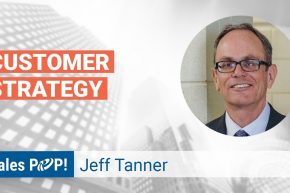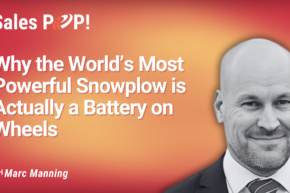In a world that often feels like a non-stop competition—where we’re constantly told to hustle harder, compare our lives to curated online versions, and chase perfection—it’s easy to feel overwhelmed. But what if there was another way? A path toward simplicity, joy, and genuine fulfillment?
Psychologist and author Dr. Angelo Valenti offers a refreshing perspective in his book, You’re Making This Way Too Hard: Find Your Easy Way to Enjoy Life. His insights, also shared in a recent interview, challenge the modern-day belief that life must be a struggle to be meaningful. Instead, he argues that true happiness lies in embracing simplicity and reclaiming control over our own narratives. Here are some of the most impactful lessons from his work, designed to help you stop making life so hard.
1. The Illusion of Perfection: Escaping Comparison Culture
Social media has created a digital stage where everyone is a star, but the performances are often heavily edited. Dr. Valenti points out that we’re constantly comparing our everyday, unfiltered reality to a “highlight reel” of someone else’s life—a recipe for discontent. This is the root of the “comparison trap.”
To break free, you need to be intentional. Limit your screen time and be mindful of who you follow. Curate your feed to include accounts that genuinely inspire you, not ones that spark envy. Most importantly, practice gratitude. By regularly acknowledging the good in your own life, you can shift your focus inward and appreciate the journey you’re on. As Dr. Valenti wisely puts it, “You have cause and effect backwards if you think happiness comes from things. Enjoying life brings success, not the other way around.”
2. The Power of Simplicity: Rethinking Productivity
Our culture often equates busyness with importance. We wear our stress like a badge of honor, convinced that if something isn’t difficult, it isn’t worthwhile. This mindset is not only exhausting but also counterproductive.
Dr. Valenti champions the idea of embracing simplicity and rest. He advocates for simple, restorative practices—like taking a short nap—that are often dismissed as lazy but are essential for recharging. Challenge the belief that “easy” means “wrong.” Schedule downtime as a non-negotiable part of your day, just as you would any important meeting. By prioritizing rest and focusing on what truly adds value, you can achieve more without the constant strain.
3. Taking Charge: Developing an Internal Locus of Control
Do you believe you are the driver of your life, or a passenger? This fundamental belief, known as your locus of control, determines how you handle challenges and create change. An internal locus of control means you believe your actions and decisions shape your life, while an external locus of control places responsibility on luck, fate, or others.
To feel more empowered, practice self-responsibility. When things go wrong, ask yourself what you can do differently next time instead of blaming circumstances. Set small, achievable goals to build confidence in your ability to influence outcomes. According to Dr. Valenti, “Waiting for luck to change things is a losing game.” Taking ownership of your choices, both good and bad, is the only way to genuinely move forward.
4. The Art of Replacement: Shifting Bad Habits
You can’t simply stop a habit; you have to replace it. Habits are powerful because they fulfill a need, whether it’s avoiding an uncomfortable emotion or seeking a sense of value. Simply trying to remove a behavior creates a vacuum that the mind will rush to fill.
The key is to identify the trigger and find a positive substitute. For instance, if you mindlessly scroll through your phone when you’re bored, try taking a short walk or making a cup of tea instead. This is a slow and steady process, like turning a massive ship. Don’t just try to “stop” a bad habit—give yourself a better alternative.
5. Embracing Imperfection: A Bias Toward Action
Decision paralysis is a typical modern affliction, born from the fear of making the wrong choice. But as Dr. Valenti points out, not making a decision is a decision in itself—one that often leaves you at the mercy of others or circumstances.
Instead of seeking a perfect solution, adopt a “bias toward action.” It’s better to make a choice, learn from it, and adjust than to remain stuck in inaction. Set a time limit for decisions and accept that no choice is flawless. Remember, every decision is a learning opportunity.
Ultimately, Dr. Valenti’s message is a call to simplify. By letting go of the need for perfection and embracing a more authentic, self-aware approach, you can stop making life so hard and start enjoying the journey.
Our Host
John is the Amazon bestselling author of Winning the Battle for Sales: Lessons on Closing Every Deal from the World’s Greatest Military Victories and Social Upheaval: How to Win at Social Selling. A globally acknowledged Sales & Marketing thought leader, speaker, and strategist, he has conducted over 1500 video interviews of thought leaders for Sales POP! online sales magazine & YouTube Channel and for audio podcast channels where Sales POP! is rated in the top 2% of most popular shows out of 3,320,580 podcasts globally, ranked by Listen Score. He is CSMO at Pipeliner CRM. In his spare time, John is an avid Martial Artist.








Comments